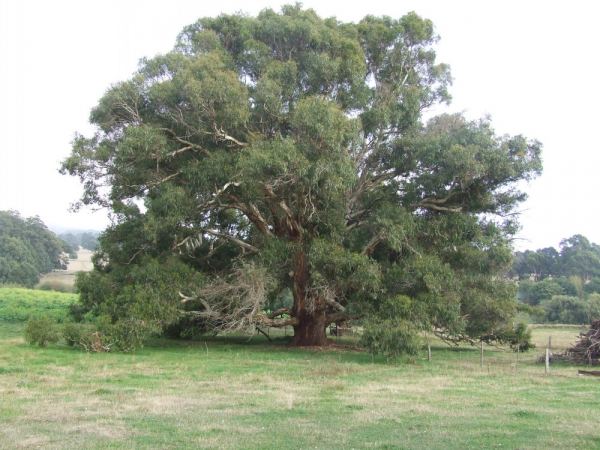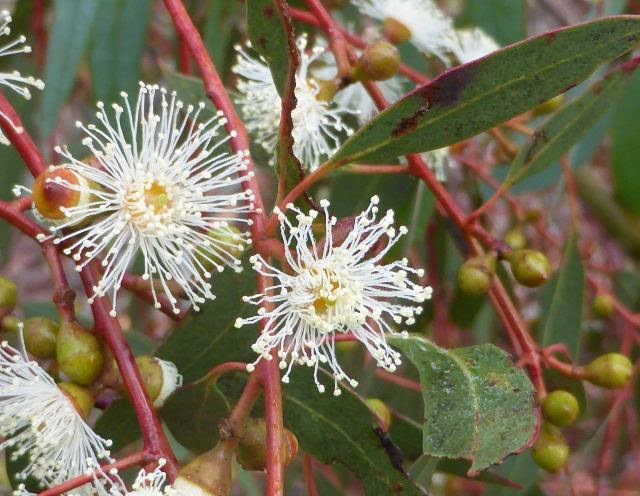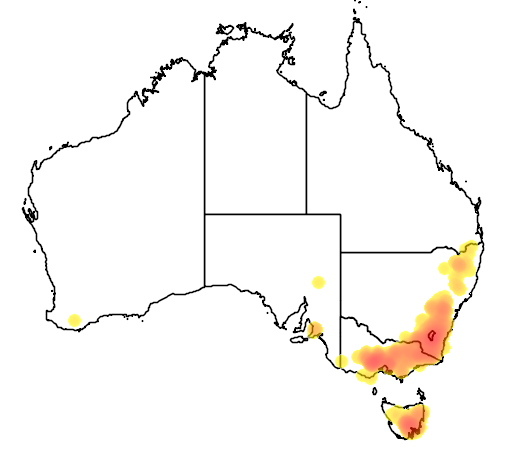Description
Common names
Candlebark, Candle Bark, Candle Bark Gum, Candle-bark Gum, Ribbon Gum, White Gum.
Scientific names
Eucalyptus rubida.
Family
Myrtaceae.
Genus
Eucalyptus.
Name origin
Rubida, from Latin rubidus, red, referring to seasonally red bark patches. Common name refers to bark appearance.
Rainfall
700mm.
Growth rate
Moderate.
Growth height
20-30m.
Presence in Australia
Widespread in the higher rainfall areas generally east of the Hume Highway.
This specie has been identified in the following Australian states: Qld, NSW, ACT, Vic, Tas, SA, WA.
Habitat
Moderately fertile, well-drained loams with clay subsoil, in foothills and tablelands. Also mountain slopes and upper river valleys.
Habit
Tall tree with straight, largely bark-free trunk, 20-30m high.
Similar species
Distinguish from Manna Gum (E. viminalis) mainly by juvenile foliage.
Site preference
Well-drained soil. Resists cold, frost, wind and moderate drought.
Characteristics
Moderate growth rate. Foliage has distinctive aroma.
Flowering
White, Dec-Apr.
Seed collection
Throughout year, particularly Feb-May.
Propagation
From seed (±220 viable seeds per gram). Optimum germination temperature 270C.
Regeneration
From seed, particularly in the absence of competitive exotic grasses or weeds, and during wet summers.
Shade and shelter
Useful medium to high level cover in windbreaks.
Fuel
Useful, although burns quickly.
Timber
Timber tough, moderately hard and strong. Not durable. Density about 760 kg/m3. Occasionally used for fencing and firewood, but generally regarded as second-rate building timber. Potential for joinery, flooring and parquetry.
Wildlife
Excellent habitat. Hollows important nest sites for many native birds and mammals. Rosellas eat capsules and seeds. Koalas occasionally eat foliage. Flowers and nectar are a food source for various native birds, insects and mammals.
Ornamental
Attractive for larger gardens and parks. White trunk, interesting juvenile foliage and pink bark streaks in late summer are features.
Other
Leaves produce yellow dye with mordant alum.



